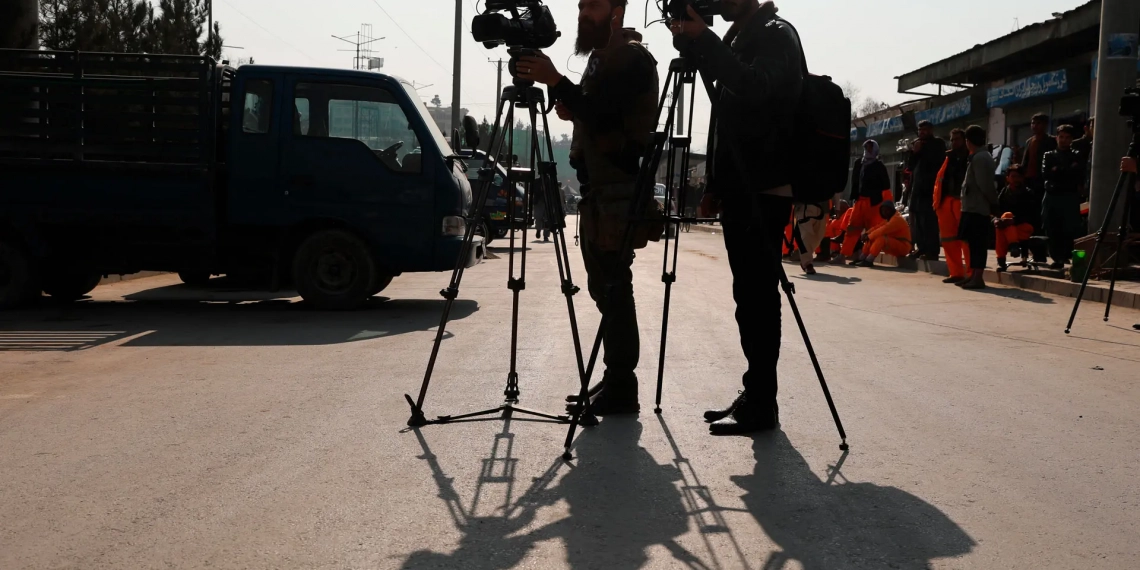Violations against Afghan journalists have fallen in 2023 compared to a year earlier, according to the Afghanistan Journalists Center (AfJC).
At least 168 violations of journalists’ rights were registered by AfJC in 2023. This is significantly less than the 260 violations registered in 2022, the AfJC said in its annual report.
Journalists’ fundamental and legal rights were severely restricted by the Taliban’s de facto government throughout the year, the annual report said.
The 2023 registered violations include the death of one journalist, injury to 19 journalists, 78 cases of serious threats against journalists, and 61 cases of arrest.
“The registered cases of violation of the rights of journalists and media in 2023 show a significant decrease compared to the 260 events recorded in 2022,” AfJC said. “But qualitatively and structurally, there is no change.”
The basis of the restrictions and violations of the rights of journalists was incurred against around 14 media “guidelines” from the Taliban, some of which were issued in 2023.
AfJC said instructions issued by the Taliban force the media to refer to the Taliban as the government of Afghanistan.
It registered eight cases of the Taliban banning media activities.
According to the guidelines, women are prohibited from working in state-owned radio and television. And journalists and domestic media have no right to cover civil protests and demonstrations.
The guidelines also include bans on broadcasting music, female journalists showing their faces, women in dramas and media entertainment programs, women and men working alongside each other, and women interviewing men or vice versa.
The Taliban also held four trials for cases against media managers and journalists, according to the AfJC report.
The Taliban held a trial in absentia for the managers of 10 private media companies and three employees of the national Radio and Television of Afghanistan and the managers of two private radio channels, the report stated.
Criminal charges were brought by the Taliban against three employees of the national Radio and Television and the manager of a private media outlet, but in other cases, media officials and journalists were prosecuted for their media work.
The AfJC report was published at a time of the most severe media restrictions with fewer media outlets and working journalists since the Taliban took power in August 2021.








